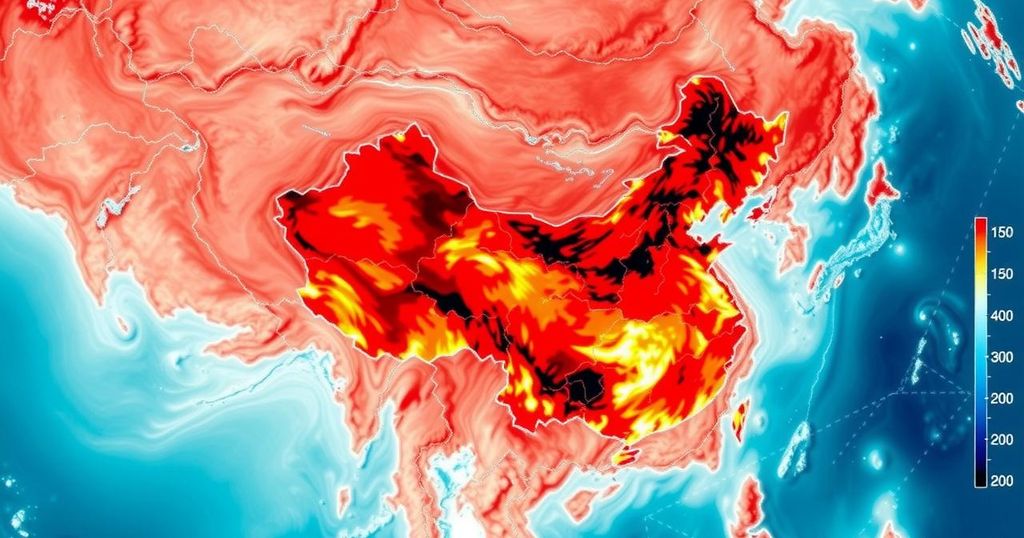China’s coastal waters have hit a record average temperature of 21.50 °C in 2024, marking an increase for two consecutive years. Concurrently, the global sea surface temperature reached 20.87 °C, the highest on record, leading to more frequent extreme weather events globally. In total, 104 countries have reported their hottest temperatures, causing severe disruptions across various regions.
The National Marine Environmental Forecasting Center of China has reported that the average temperature in the country’s coastal waters has reached an unprecedented 21.50 °C in 2024. This marks a continuous increase for the second year, surpassing the previous year’s reading by 0.15 °C and exceeding the standard annual average by 1.16 °C. This temperature hike reflects a broader global trend, as the Copernicus Climate Change Service has also indicated that global sea surface temperatures hit a new record of 20.87 °C in the same year, establishing 2024 as the warmest year for oceanic conditions in recent history.
The upward trend in ocean temperatures is catalyzing a rise in extreme weather phenomena and climate-related disturbances. The report highlights that in 2024 alone, 104 countries experienced their highest recorded temperatures, leading to severe weather outcomes such as droughts, heatwaves, and wildfires in diverse regions including South Africa, South Asia, the Philippines, Brazil, Europe, and the northeastern United States. This alarming trend underscores the pressing need for global attention and action regarding climate change, as indicated by research conducted by the Institute of Atmospheric Physics of the Chinese Academy of Sciences in collaboration with 54 scientists across 31 research institutions worldwide.
The issue of rising ocean temperatures is a critical indicator of climate change, with specific implications for weather patterns and ecological systems worldwide. In China, the rising temperatures in coastal waters are not just of local concern but reflect a global crisis as noted by international climate monitoring agencies. The effects of these rising temperatures are far-reaching, impacting biodiversity, jeopardizing coastal ecosystems, and exacerbating severe weather conditions, which has become increasingly apparent in recent years. Such findings compel a reevaluation of adaptive strategies to mitigate these effects in both local and global contexts.
In summary, the record high temperatures recorded in China’s coastal waters exemplify the alarming trend of global ocean warming, correlating with increased extreme weather events observed worldwide. This alarming spike necessitates immediate and sustained efforts on a local and international scale to address climate change consequences effectively. The findings emphasize the urgent need for enhanced scientific research and comprehensive climate policies aimed at preserving marine and coastal ecosystems while minimizing the impact of climate fluctuations.
Original Source: www.ecns.cn






